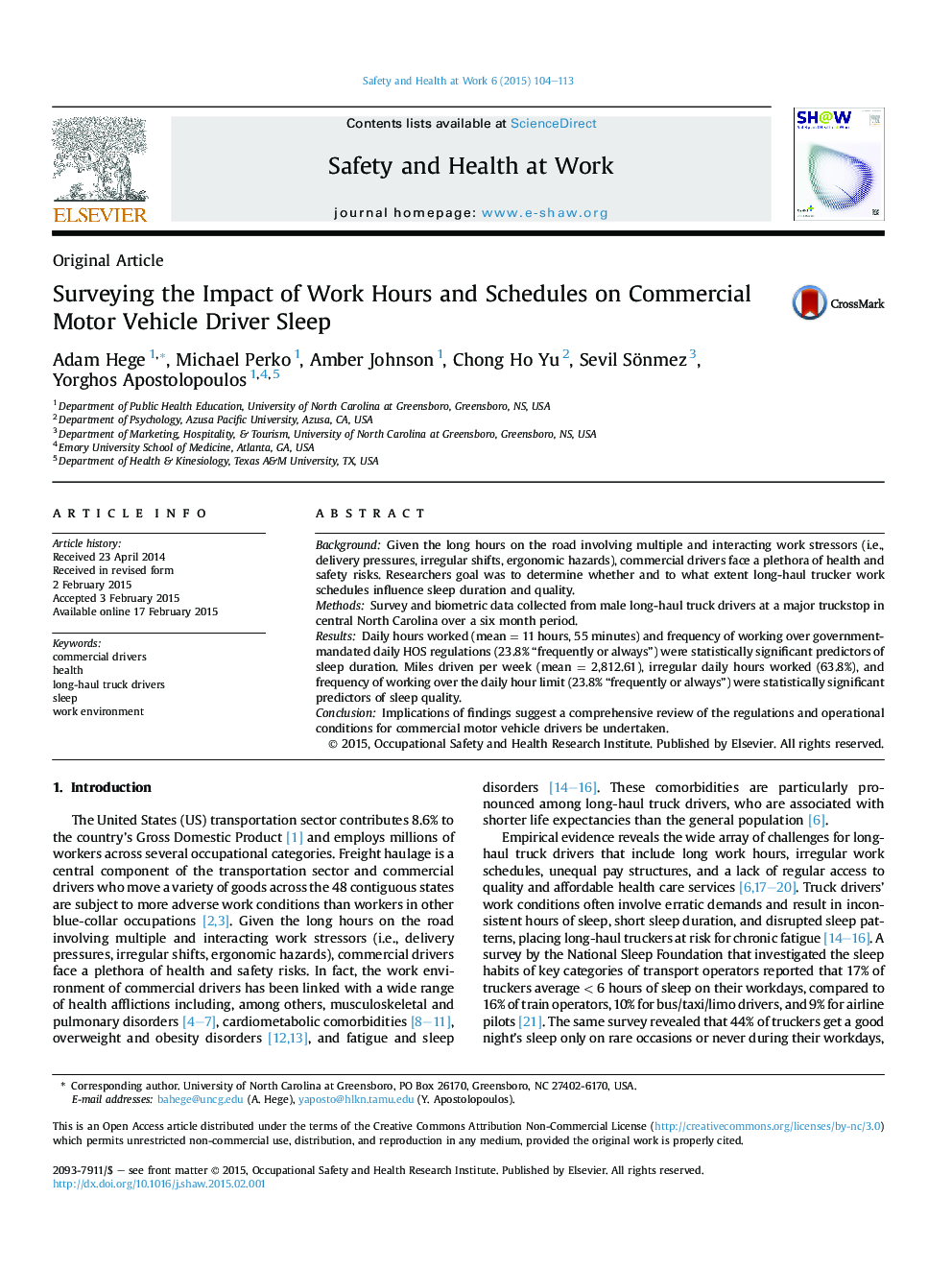| Article ID | Journal | Published Year | Pages | File Type |
|---|---|---|---|---|
| 1091968 | Safety and Health at Work | 2015 | 10 Pages |
BackgroundGiven the long hours on the road involving multiple and interacting work stressors (i.e., delivery pressures, irregular shifts, ergonomic hazards), commercial drivers face a plethora of health and safety risks. Researchers goal was to determine whether and to what extent long-haul trucker work schedules influence sleep duration and quality.MethodsSurvey and biometric data collected from male long-haul truck drivers at a major truckstop in central North Carolina over a six month period.ResultsDaily hours worked (mean = 11 hours, 55 minutes) and frequency of working over government-mandated daily HOS regulations (23.8% “frequently or always”) were statistically significant predictors of sleep duration. Miles driven per week (mean = 2,812.61), irregular daily hours worked (63.8%), and frequency of working over the daily hour limit (23.8% “frequently or always”) were statistically significant predictors of sleep quality.ConclusionImplications of findings suggest a comprehensive review of the regulations and operational conditions for commercial motor vehicle drivers be undertaken.
